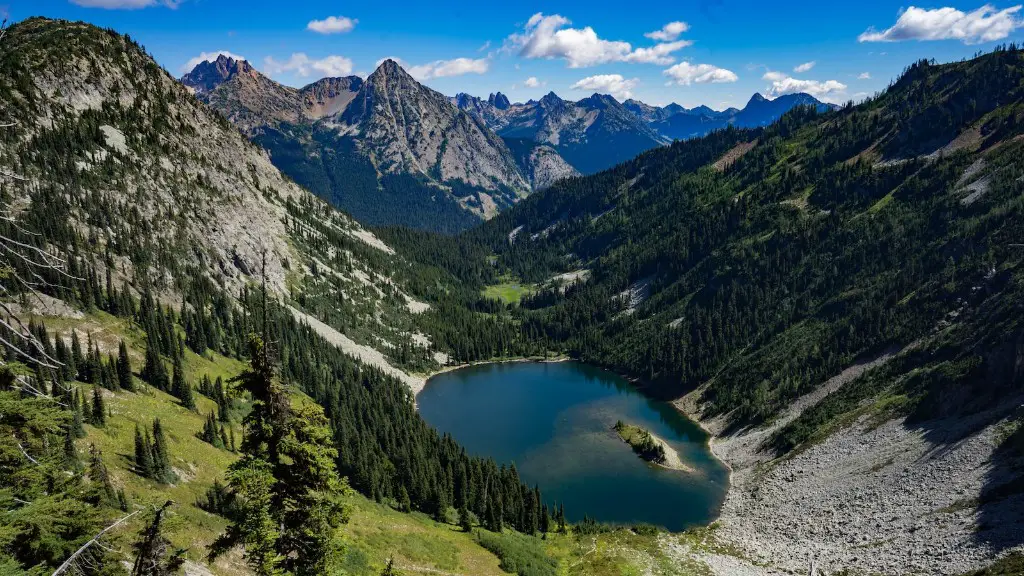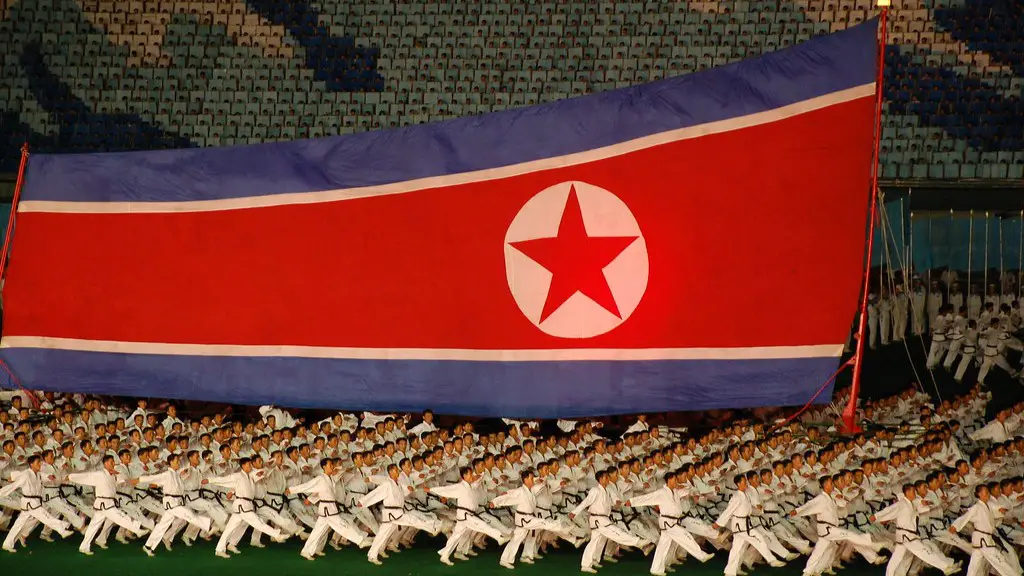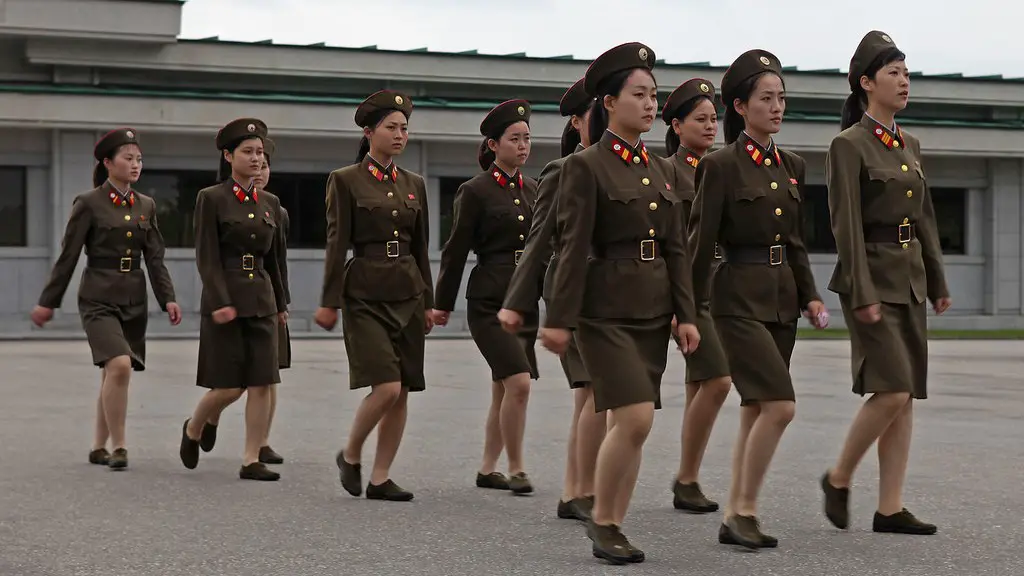Background Information on North Korea’s Freedom
North Korea is an isolated country that is known for its lack of freedom and human rights violations. It is ruled by the Kim family, which has held power for more than 70 years. The last official census, which took place in 2008, showed that the population was estimated at 24.45 million people. North Korea has a centrally planned economy, meaning the government controls production, investment, and prices. The country is a closed and heavily regulated state, where the government has control over almost every aspect of people’s lives. This includes freedom of movement, access to information, and freedom of expression.
Restrictions on North Korea’s Freedom
North Koreans are subject to strict laws, which are intended to ensure that citizens comply with the government’s wishes. These laws include harsh punishments, such as imprisonment and hard labor, for any perceived wrong-doings. The government also monitors citizens’ behavior and their use of the internet and other activities, such as the media, to further restrict the citizens’ freedom.
For example, North Koreans have limited access to the internet, and the government censors information that is available, if it does not comply with their political views. Citizens can be arrested and even face the death penalty for accessing information from outside the country.
Moreover, North Korean citizens must have a special permit to travel, and the government can reject any request for travel for any reason. Although people are legally allowed to practice their faith in North Korea, the government monitors and cracks down on any attempts to practice religion outside of state-sanctioned institutions.
Human Rights Violations
The lack of freedom in North Korea has led to widespread human rights violations. In addition to the restrictions on movement, speech, and access to information, North Korea also has one of the worst records of human rights abuses in the world. The United Nations has documented numerous violations, including torture, arbitrary detention, forced labor, and other forms of repression.
Moreover, North Korea has a secretive prison camp system known as the “kwanliso”, which is believed to have been in existence since 1972. It is estimated that up to 120,000 people are detained in these camps, where torture, hard labor, malnutrition, and other forms of abuse are common.
Impact of International Pressures
International pressure has had some success in convincing the North Korean government to make small improvements in human rights and freedom. However, the overall situation remains largely unchanged. In fact, a recent report from the United Nations have raised concerns that the human rights situation in North Korea has “steadily deteriorated” since the early 2000s.
For example, the North Korean government has refused to cooperate with United Nations human rights investigators and continues to restrict the media and access to information. In addition, the government often targets activists and their families with threats, harassment, and even imprisonment in an effort to deter citizens from exercising their rights.
Analysis of North Korea’s Freedom
It is clear that North Korea has very limited freedom, and the lack of freedom is perpetuated by the government’s authoritarian rule. The country has some of the most oppressive laws in the world, and its human rights record is one of the worst. North Koreans are subject to harsh punishments and surveillance, and the government monitors and censors their access to information.
In addition, the government systematically targets activists and their families in an effort to prevent them from exercising their rights. Although international pressures have had some success in prompting small improvements, the overall situation remains largely unchanged.
North Korea’s Youth and Freedom
The lack of freedom in North Korea is particularly damaging to its young people. North Korean students are taught a state-approved curriculum that focuses on propaganda and indoctrination rather than education and critical thinking skills. They have limited access to outside information and little opportunity to explore ideas that challenge the government’s rule.
In addition, young people in North Korea often face forced labor, military conscription, and other forms of mistreatment. This lack of freedom inhibits their development and their ability to participate in the economic and political life of their country.
International Efforts to Help North Koreans
The international community has made efforts to help North Koreans gain more freedom and improve their human rights situation. The United Nations has imposed sanctions on the country and attempts to work with the government to end human rights violations.
In addition, a number of international non-governmental organizations, such as Human Rights Watch, Amnesty International, and Freedom House, have launched initiatives and campaigns to support human rights activists in North Korea. These organizations provide legal aid, raise awareness of North Korea’s human rights abuses, and document and report on the violations.
Domestic Efforts to Help North Koreans
Domestic organizations are also working to help North Koreans gain more freedom. These organizations, such as the North Korea Human Rights International Network, provide legal assistance and advocacy for citizens who face human rights abuses. They also work to educate North Koreans about their legal and human rights, and provide support to those who are held in political prisons.
In addition, there have been some efforts within the country to support freedom and human rights. However, these initiatives are often quickly silenced by the government, as they are seen as a threat to its power.
The Future of Freedom in North Korea
North Korea’s lack of freedom and human rights abuses are severe, and the country’s citizens are in desperate need of change. Although international and domestic efforts are being made to help North Koreans gain more freedom, the government’s oppressive rule shows no signs of weakening. It is clear that the people of North Korea will continue to face difficult human rights struggles until real and lasting changes are made.


